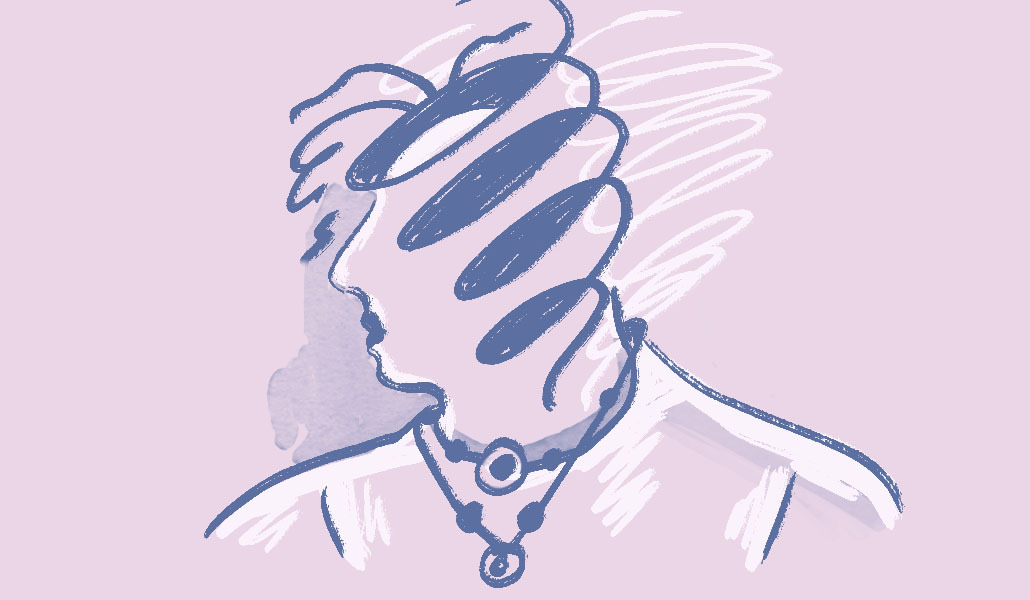‘She secretly wonders if she has dementia’: Menopause awareness online is translating back to the office

Nutritionist and menopause educator and researcher Andrea Donsky has over 300,000 followers on TikTok, with an account focused entirely on menopause education and awareness.
A part of that menopause education includes describing how it impacts women showing up in the workplace. She has posted several videos about the topic, including a recent four-part series which was prompted by a commenter who wrote “I also wish this was discussed more in workplaces. So many women are going through the same thing but colleagues see behavior changes and don’t understand why.”
The comment is a stark reminder that although there has been a significant push from women and menopause awareness advocate groups, there is still progress to be made to remove the stigmas associate with the topic in the workplace. Some companies now offer perimenopause or menopause-related leave, but advocates in this space argue that the topic needs to be better understood.
Part of that work is happening outside of the workplace and on social media, where a group of influencers with thousands of followers, like Donsky, are driving the conversation about how menopause shows up in the workplace so that it isn’t taboo.
Donsky has found “authentic” community on TikTok, where she has had an account for over two years. It’s a place where she has found answers after having “a very hard time with perimenopause.”
“I was in the health and wellness space for 17 years and I was like ‘wait, shouldn’t I know all this? This is what I do.’ But I knew nothing,” she continued. “I set out on a mission to find out everything I possibly could and now I am educating other women.”
She’s using her account to highlight survey results that her company Morphus, a menopause education website, facilitates.
“One woman said ‘my boss listened and acted sympathetic, but she really doesn’t get it, she’s not going through menopause yet,’” said Donsky in a video, sharing the ranging survey results. “Another said her boss gave her a fan to help her with her hot flashes, and another woman said her boss completely understood because her boss is going through the same thing and they compared notes and strategies.”
Dr. Adrienne Stein, a naturopathic doctor, also has spent some time on TikTok to share with her followers the realities of going through menopause at work.
“I just got off with a patient of mine who was just explaining how she got a call with a message at work, took five steps to tell her boss this person called, and she couldn’t remember his name by the time she got to his office,” said Stein. “Her memory has always been amazing and now she secretly wonders if she has dementia or what is going on. There’s a lot of stress that happens within the workplace, and unfortunately not a lot of understanding or discussion.”
If it’s not being discussed at work, it is being discussed online. “TikTok and social media have exploded with talk about perimenopause and menopause,” said Stein.
Stein’s biggest wish? For people to share more of their experiences online.
“My hope would be that other people on TikTok, including people who may be in management positions, will also gain some awareness as well,” said Stein. “I don’t know if there is a big shift happening yet with management, but we can definitely see that because social has brought so much attention to this issue, there are changes happening.”
She’s been in practice for 20 years and has seen a significant change in awareness around menopause. Years ago, the understanding of hot flashes associated with menopause was the extent of it, whereas today, the conversation seems to have more depth. She still sees people posting about feeling alone at work, but finds validation in those feelings when other people respond with their shared experience.
Former PIX11 anchor and journalist Tamsen Fadal, who has gained over 500,000 followers on the app, has an extensive “all things menopause” playlist with multiple viral videos.
“The way that you’re feeling now isn’t because you’re losing your mind, it’s because you’re going through perimenopause: brain fog, the feeling you’re looking for words, and you’re on the outside looking in,” said Fadal in a video.
Fadal only just started posting menopause-related TikTok videos five months ago, starting with a video that went viral about 34 symptoms from menopause that go beyond heat flashes. “It was so shocking to see so many people that wanted to talk about it,” said Fadal.
That long list of symptoms all happen when women are likely at the peak of their career, hitting those vice president or director positions, where more is expected of them and it feels like there is less room for mistakes.
“There’s more to talk about than just the symptoms and there’s a lot of things we go through in this stage of life and most of us are still working when we’re going through this,” said Fadal. “I want people to realize that transition is going to happen, what to expect, and how to advocate for themselves if that’s something that they need or want to do in the workplace.”
Fadal uses her account to highlight tips of how to handle menopause symptoms in the workplace. For example, she’s provided a script on what questions to ask HR about leave, how to talk to the people you work with about it, and how to help other women who might be going through the same thing.
It’s especially helpful when the stigma isn’t completely erased. Fadal admits that she was worried to talk to even her closest friends about menopause because she wasn’t sure if she’d be embarrassed. When you have social media to turn to for helpful advice and information, it helps women with those concerns and ultimately helps you navigate challenges that might come up at work during this time, she said.
“I’m doing it to educate,” said Fadal. “For every one woman that knows about it, there’s like 100 that need to talk about it. It’s to make it normalized so that we’re not whispering that word because we’ve spent a long time whispering it or not saying it at all. If I can make a 30-year-old hear that word so when she’s 42 and has symptoms, she doesn’t feel alone or doesn’t know what it is.”


